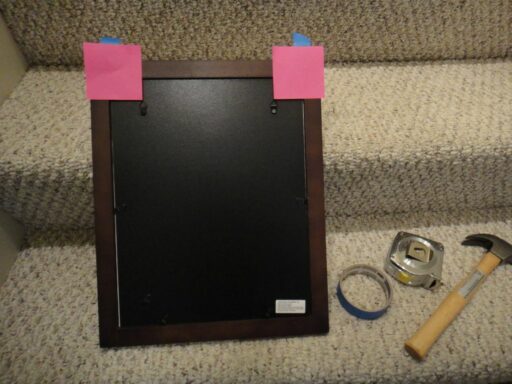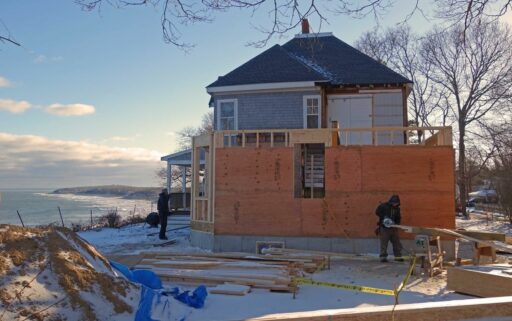Becoming a licensed general contractor in California is a comprehensive process that involves meeting eligibility requirements, navigating the application process, preparing for and passing the CSLB exam, and finalizing your license. This guide provides a step-by-step approach to help you understand and successfully complete each phase, from gaining the necessary experience to building a reputable business in the construction industry.
Key Takeaways
- Four years of hands-on experience is required to qualify for a Class B General Contractor’s License in California, with education offering a potential workaround.
- The application process for the license includes gathering necessary documents, understanding the fees involved, and submitting your application, which typically takes 3-4 weeks to process.
- Preparation for the CSLB exam is crucial, with official study guides from the CSLB and various training programs available to assist candidates.
- After passing the exam, there are additional steps such as meeting bond requirements and receiving your license, which can take an additional 1-2 weeks.
- Establishing and growing your business involves effective marketing, networking for referrals, and committing to continuing education for long-term success.
Understanding the Eligibility Requirements

Minimum Experience Needed
To qualify for a California General Contractor License, applicants must meet certain experience criteria. At least four years of relevant experience is required, which can be obtained through various roles such as a journeyman, foreman, supervising employee, or contractor. This experience must have been accrued within the last ten years to be considered valid.
The state of California allows for educational achievements to partially substitute for practical experience. Here’s a breakdown of the possible exemptions:
- Up to three years of credit for relevant educational or technical training.
- At least one year of practical experience is mandatory, regardless of educational background.
It’s important to note that while education can ease the experience requirement, hands-on experience in the field is indispensable.
When documenting your experience, you can submit evidence of being self-employed, along with transcripts that may account for at least 18 months of credit. It’s essential to have a certifier who can vouch for your experience.
Educational Pathways
For those aiming to become a licensed general contractor in California, the educational journey is a critical component. A bachelor’s or master’s degree in construction management or engineering is often pursued, providing a blend of technical and business skills essential for leadership in the construction field.
To meet the educational requirements for licensure, candidates can utilize various pathways:
- Accredited Degrees: Degrees in construction management, architecture, engineering, and related fields can be credited towards the experience requirement.
- Technical and Vocational Training: Apprenticeship programs and vocational training in the relevant trade can also contribute to meeting the experience prerequisites.
It’s important to note that up to three years of educational credit can be applied toward the four-year experience requirement, offering a significant advantage for those with relevant educational achievements.
Continuing education remains a cornerstone for career advancement, with ongoing training and certifications serving as a testament to a contractor’s dedication to excellence and adaptability in an ever-changing industry.
Class B General Contractor’s License
To engage in general contracting work in California, obtaining a Class B General Contractor’s License is essential. This license is a requirement for those whose main business involves any structure being built or requiring at least two unrelated building trades or crafts. For residential remodeling contractors, a Class B-2 license is specifically tailored for improvements on existing residential structures.
Eligibility for a Class B license includes being at least 18 years old, passing a state-specific exam, and fulfilling the necessary fee payments. Additionally, liability insurance and bonding are mandatory to ensure compliance and protection in your contracting endeavors. For detailed information on bonds and insurance requirements, refer to the CSLB’s updated guidelines.
The journey to becoming a licensed general contractor is marked by a significant barrier: the requirement of four years of hands-on experience. This experience is crucial in ensuring that contractors are well-prepared to evaluate contractor performance, understand licensing and insurance requirements, navigate legal and regulatory considerations, and comply with local building codes for successful construction projects.
Navigating the Application Process

Gathering Necessary Documents
Before submitting your application for a California General Contractor License, it’s crucial to gather all the necessary documents. Ensure that your application is not delayed due to incomplete paperwork. Start by compiling a checklist of required documents, which typically includes proof of your experience, educational qualifications, and a detailed record of your work history.
To assist with this process, consider the following resources:
- Decision-Making Tools: Utilize checklists and templates for assessing your skills and planning your projects.
- Fingerprinting and Live Scan Services: Obtain the necessary background checks.
- Public Information Center FAQ: Review common questions for additional guidance.
Remember, thorough preparation of your documentation will streamline the application process and set a solid foundation for your licensing journey.
Submitting Your Application
Once you have gathered all the necessary documents, it’s time to submit your licensing application along with the supporting documents and the required fees. Currently, the Contractor State License Board (CSLB) accepts fees only via mail. Ensure that your application package is complete to avoid any delays in processing.
Send your application to the following address:
Contractor State License Board
9821 Business Park Drive
Sacramento, CA 95827
After submission, you can track the status of your application through the [Online Service – CSLB – CA.gov](https://www.cslb.ca.gov/OnlineServices.aspx). It’s important to note that the processing times can vary, so plan accordingly. Once your application is approved, you will be scheduled for the CSLB exam, which is the next crucial step towards obtaining your license.
Understanding the Fees
When applying for your California General Contractor License, it’s crucial to be financially prepared. Understanding the fees involved is essential for budgeting and cash flow management. The fees for the application process are not just a single payment; they are a combination of different charges that may vary depending on the type of license and other factors.
Here’s a breakdown of the potential fees you might encounter:
- Application fee: The initial cost to process your application.
- Examination fee: A separate charge for taking the CSLB exam.
- License fee: Payable upon passing the exam and before receiving your license.
- Renewal fee: Periodic payments to maintain the validity of your license.
Remember, these fees are an investment in your professional future. Ensuring you have a clear understanding of your budget and a plan for managing costs, including a contingency fund, can help you navigate this process smoothly.
Specialized licenses may have different fee structures, so it’s important to verify the exact amounts for your specific situation. Contractors can also reduce insurance premiums, which is another cost to consider, by improving safety on job sites.
Preparing for the CSLB Exam

Study Materials and Resources
To excel in the CSLB exam, it’s crucial to utilize a variety of study materials and resources. A well-rounded preparation strategy should include books, online courses, and practical exercises.
The following is a list of recommended resources to aid in your study efforts:
- Exam Prep 1-on-1
- Air Conditioning
- Accounting
- Blueprint Reading
- Business
- Construction Math
- Electrical
- Estimating
- Plumbing
Each resource has been carefully selected for its relevance to the construction industry and the exam content. By engaging with these materials, you can build a strong foundation of knowledge and improve your chances of passing the exam.
Remember, ongoing support and information are vital for continuous learning and staying updated with industry trends. Make sure to incorporate resources that offer sustained educational value beyond the exam.
Exam Content and Structure
The California State License Board (CSLB) exam is a critical step in obtaining your general contractor license. The exam is a multiple-choice test that covers a wide range of topics pertinent to construction and contracting within the state. The exam is divided into two main sections: the Law and Business Examination, and the trade-specific examination, which varies depending on the license classification you are seeking.
For example, the C-33 – Painting and Decorating Contractor classification will test your knowledge on preparation techniques and application of various finishes. Each classification has its own set of topics that you will need to be familiar with. It’s important to review the official CSLB examination study guides, which provide detailed information on the content and structure of the exam.
To pass the CSLB exam, you need to achieve a score of 72% or higher. While this may seem daunting, remember that the exam is designed to assess your readiness to operate safely and legally as a contractor in California. Here’s a brief overview of the types of content you can expect on the exam:
- Law and Business: Contract law, business management, employment regulations, and safety.
- Trade-Specific: Technical knowledge, code requirements, and job-specific skills.
Preparation is key to success. Familiarize yourself with the exam format, study the materials thoroughly, and practice with sample questions to increase your confidence on test day.
Test-Taking Strategies
Approaching the CSLB exam with effective test-taking strategies can significantly increase your chances of passing on the first attempt. Develop a systematic approach to answering questions, ensuring you understand the question before selecting an answer. Time management is crucial; allocate your time wisely to avoid rushing through the last portion of the exam.
- Review the types of questions that will be on the exam.
- Practice with sample questions to familiarize yourself with the format.
- Read each question carefully and eliminate obviously wrong answers.
- Mark questions you are unsure about to review if time permits.
Remember, a calm and composed mindset during the exam can greatly aid in recalling information and making sound decisions. Anxiety can cloud judgment, so practice relaxation techniques leading up to the exam day.
It’s also beneficial to visit a website page featuring a list of best contractors in various categories to understand the industry standards and expectations. This can also provide insights into the test process for safety and compliance, which is often a significant component of the exam.
After the Exam: Finalizing Your License

Receiving Your License
Once you have passed the CSLB exam with a score of 72% or higher, the next step is to receive your official California General Contractor license. This is a moment of both achievement and new responsibility. You will be mailed your license, which you should display prominently at your place of business and on all official documents.
Maintaining your license is crucial for your business’s legality and credibility. Ensure you are aware of the renewal periods and any continuing education requirements. In California, the general contractor license typically requires renewal every two years. Here’s a quick checklist to keep your license in good standing:
- Stay informed about renewal deadlines
- Complete any required continuing education
- Submit renewal applications on time
- Keep personal and business information up to date with the CSLB
Remember, compliance with regulations and ongoing education are essential for keeping your license active and your business thriving.
Bond Requirements
Securing the necessary bonds is a critical step in finalizing your general contractor license in California. The Contractor’s State License Board (CSLB) mandates a Bond of Qualifying Individual (QBI) for licenses qualified by a Responsible Managing Employee (RME), set at $25,000. This requirement ensures that the public is protected from financial loss due to a contractor’s failure to comply with licensing laws.
For licenses qualified by a Responsible Managing Officer (RMO), the QBI may not be mandatory. The exemption applies if the RMO owns at least 10% of the voting stock of the corporation. Otherwise, a Bond of Qualifying Individual Exemption Certification must be completed by the RMO.
It’s essential to understand the nuances of bond requirements to avoid delays in license issuance and potential penalties.
Below is a summary of the bond types and their purposes:
- Guardian Bond: Protects minors or incapacitated individuals under a guardian’s care.
- Supersedeas Bond/Appeal Bond: Used in the appeal process to delay payment of a judgment.
- Fidelity Bonds: Includes Business Services Bond, Employee Dishonesty Bond, and ERISA Bond, which safeguard against losses due to employee dishonesty or fraudulent acts.
Maintaining Your License
Once you have successfully navigated the complexities of obtaining your California General Contractor License, maintaining it becomes your next priority. Renewing your license periodically is essential, typically every two years, though the frequency can vary by region. It’s crucial to stay informed about the specific renewal requirements for your license to avoid any lapses that could impact your business operations.
To ensure your license remains in good standing, adhere to the continuing education requirements, which are designed to keep you updated on the latest industry standards and practices.
Additionally, you may need to file any required bonds or manage other administrative tasks related to your license. For example, if the qualifying individual for your license is a Responsible Managing Employee (RME), they must inactivate their individual license. Keeping abreast of these requirements is vital for the uninterrupted continuation of your contracting services.
Building Your Business and Reputation

Effective Marketing Strategies
In the competitive world of general contracting, identifying your target market and differentiating from your competitors is crucial. Understanding your unique selling propositions and how they benefit your clients will form the backbone of your marketing efforts.
Diversifying your marketing channels is also essential. Rather than relying solely on platforms like Angie’s List or Google Ads, consider a multi-channel approach that may include social media, professional websites, and participation in trade organizations. This strategy not only increases your visibility but also enhances the potential for client conversion.
Leveraging online platforms and trade organizations can significantly boost your reputation. By sharing your story and engaging with the community, you create a brand that resonates with clients and peers alike.
Remember, marketing is not just about reaching out—it’s about making meaningful connections. Articles on various types of contractors and licensing requirements can showcase your expertise and achievements in the industry, further establishing your dominance and credibility.
Networking for Referrals
Networking is a cornerstone of any successful contracting business. Building a robust network can lead to a steady stream of referrals, which are essential for growth and sustainability. Leveraging online platforms and trade organizations can significantly enhance your visibility in the industry.
Investing in a professional website and establishing a social media presence are effective ways to keep your business top-of-mind for potential clients.
Referral services endorsed by the Contractors State License Board, such as Angi, HomeAdvisor, and Yelp, offer online marketplaces where clients can find licensed contractors. These platforms can be instrumental in increasing your reach and generating more business leads.
Remember, a successful career as a general contractor extends beyond just skill and experience; it’s also about how well you’re perceived within the construction community. Utilize every tool at your disposal to ensure that your network is actively promoting your services.
Continuing Education and Growth
Continuing education is essential for general contractors who wish to stay ahead in the ever-evolving construction industry. Pursuing additional training and certifications is a clear indication of a contractor’s dedication to excellence and continuous improvement. This commitment not only enhances one’s market value but also significantly improves the quality of work delivered, distinguishing a contractor in a competitive market.
Employer-sponsored programs can be invaluable, providing mentorship and financial support for further education or certifications. These programs create a supportive environment that fosters career growth and development.
Maintaining and enhancing your skills through continuing education is not just about personal growth; it’s a strategic move that keeps you compliant with licensing requirements and abreast of the latest industry trends and technologies.
- Maintain Your License: Ensure you meet any continuing education requirements and renew your license as necessary. License renewal periods can vary, so stay informed about the specifics for your area.
- Networking and Innovation: Additional training opens doors to new connections and potential partnerships. Staying technologically adept and adapting to new regulations and methodologies are crucial for maintaining a competitive edge and thriving in the industry.
Conclusion
Embarking on the journey to become a licensed general contractor in California is a clear-cut process that requires dedication and proper planning. By following the steps outlined in this guide, from gaining the necessary hands-on experience to passing the CSLB exam and understanding the financial and eligibility requirements, you are well on your way to establishing a rewarding career in the construction industry. Remember, the key to success lies in meticulous preparation for the exam using official study guides and not letting the process overwhelm you. With commitment and the right approach, you can make the path to becoming a licensed builder in California seem effortless. Good luck on your journey to becoming a key player in California’s vibrant construction sector!
Frequently Asked Questions
What are the eligibility requirements for a general contractor license in California?
To be eligible for a general contractor license in California, you need to have four years of hands-on experience or a combination of education and experience. Additionally, you must pass the Contractor State License Board (CSLB) exam.
How much does it cost to obtain a general contractor license in California?
The cost of obtaining a general contractor license in California can vary. The fees include the application fee, examination fee, and the cost of the required contractor bond. Specific amounts should be verified with the CSLB as they can change over time.
How long does it take to become a general contractor in California?
Becoming a general contractor in California typically takes 1-2 months, excluding the four years of required work experience. This timeframe includes processing the license application and receiving your license after passing the exam.
What is the structure and content of the CSLB exam for general contractors?
The CSLB exam for general contractors includes a variety of topics relevant to construction and contracting. It is structured to assess the applicant’s knowledge and skills. Official study guides from the CSLB offer a breakdown of topics and example questions.
What are the bond requirements for California general contractors?
California general contractors are required to maintain a contractor bond as part of the licensing process. The specific requirements and amounts can be found in the official licensing guide provided by the CSLB.
How can I effectively market my business and get referrals as a new general contractor in California?
Effective marketing strategies include building a professional website, leveraging social media, and networking within the industry. To get referrals, focus on delivering high-quality work and maintaining good relationships with clients and other contractors.





